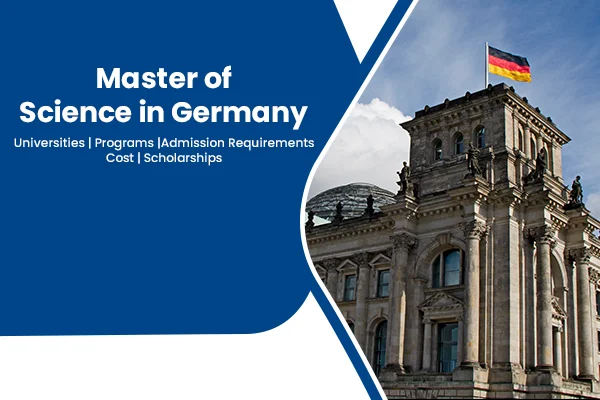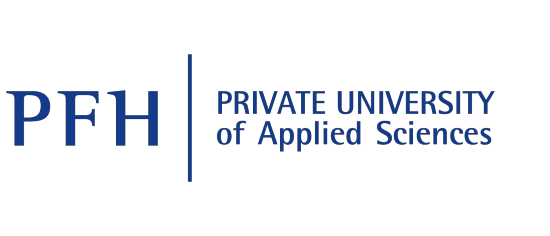

Master of Science in Germany Universities | Programs & More
With many technological advancements going on in the field of Computer Science, pursuing a Master of Science in Germany in this field has become a popular choice for students from India and abroad. Students are attracted to Germany’s renowned education system, combined with its robust economy and rich cultural heritage, which offers an ideal environment for advanced studies. A Master of Science in Germany is not only a prestigious qualification but also a passage to great professional opportunities around the world.
Why Choose a Master of Science in Germany?
Germany is an excellent study destination for MSc students. The reasons that it is preferred by students are:
- Quality Education- German universities are popular all over the world for their academic standards and research facilities.
- Low Tuition Fee- Most of the public universities in Germany do not charge tuition fees or in certain cases charge very low fees from their students.
- Variety of Streams- There are a lot of MSc programs available in various fields and specializations.
- Strong Industry Connections- The German colleges have close industry connections and provide internships and employment options after the completion of course.
- Cultural Experience- Germany provides exposure to the country’s cultural landscape and choice to learn a new language for foreign students.
High-ranked Universities in Germany for masters in computer science
Many German universities rank top in the list of international universities. Here are a few of these, advisable for pursuing masters in computer science in Germany and other engineering programs:
- PFH University: The University’s MSc in Computer Science program is well-known for its industry-centric curriculum and close association with top technology companies.
- Technical University of Munich (TUM)- The university has first rank in Germany for offering programs in engineering and technology. TUM also offers an excellent MSc in Computer Science program.
- RWTH Aachen University- It is known for its focus on research and its computer science programs based on real-world experience.
- Technical University of Berlin (TU Berlin)- It offers many programs in computer science that focus on innovation and offer specialization.
- Heidelberg University: Provides a Master’s in Data and Computer Science programs with equal focus on theory and practical knowledge.
- University of Stuttgart- The university offers programs in the computer science field that are designed as per industry needs.
Popular Master of Science Programs in Germany
Germany has a diverse range of MSc programs in almost all fields. Some of the fields in-demand include:
- Engineering- The big three namely- Mechanical, Electrical and Civil are the most popular. Automotive Engineering is also popular due to Germany’s powerful automotive industry.
- Computer Science- AI is changing the world, pursuing an MSc in Computer science field opens doors to opportunities in tech industries. PFH University is among the top institutions for MS in Computer Science in Germany for Indian students. It offers practical training in AI and data science applications.
- Social Sciences- International Relations, Political Science, Sociology, and Anthropology are a few of the social science disciplines offered.
- Environmental Sciences- Programs on sustainability are on the rise because of global emphasis on environment conservation.
- Business and Management – Programs like MSc (or specialized MScs) focusing on international business, finance, entrepreneurship, etc.
Admission Requirements for Master of Science in Germany
The requirements may change from university to university, but common admission criteria is:
- Bachelor’s degree- A relevant undergraduate degree with good marks
- Language Proficiency: If you want to apply to English-taught programs, you need to have English proficiency proof (TOEFL or IELTS). For German-taught programs, German proficiency is required (e.g., TestDaF or DSH).
- GRE/GATE Scores: Some programs might ask for standardized test scores.
- Letters of Recommendations: 2 academic references needed.
- Statement of Purpose: An essay discussing your academic interests, goals, and reasons for selecting the particular program.
- CV/Resume: Outlining your academic and professional experience.
- Work Experience: Some programs, particularly in the fields of business and management, may prefer or require relevant work experience.

What is the Cost of Studying an MS in Germany?
Understanding financial aspects is important for planning your studies:
- Tuition Fees: Public universities offer free-education. Although, some federal states may charge fees from non-EU students. Private universities charge between €8,000–€20,000 a year.
- Semester Contribution: All students have to pay a semester contribution (€150–€300) that covers administration costs and public transport.
- Cost of Living: Students should allow approximately €992 a month for accommodation, food, transport and personal expenses.
Scholarships for Master of Science in Germany
MSc in Germany for international students can be eased financially, with the help of different scholarships:
- DAAD Scholarship: A diverse range of funding programs by German Academic Exchange Service.
- Deutschlandstipendium: Financial and non-material support for high achievers from all over the world.
- Erasmus+: Scholarships to study in participating European countries.
- Non-Governmental Scholarships: These include scholarships offered by organizations such as Friedrich Ebert Stiftung and Konrad-Adenauer-Stiftung for academic excellence and social engagement.
- University Scholarships: A lot of universities have their own funding; check their official websites. PFH University also offers merit-based and need-based scholarships to international students.
Part-Time Jobs for MS Students in Germany
International students are allowed to work part-time to help fund their education.
- Working Hours: Maximum 120 full days or 240 half days per year (no special permit required).
- Work: Research assistants, tutors, café work or internships related to studies.
- Wages: When the money is on average €10 to €15 per hour.
- Work Regulations: Adhere to German labor laws and tax regulations to avoid problems.
Conclusion
Students who wish to study higher can consider a degree in a Master of Science in Germany for a high-quality education for less investment and promising career growth. Germany has top-ranked universities and robust job opportunities. PFH University in Germany is known for its student-centric approach and industry partnerships, is an excellent choice for pursuing MSc in Germany. Pursuing a Master of Science in Germany will help to increase your academic knowledge and give you a successful career.
Frequently Asked Questions
Yes, Germany offers high-quality education, low tuition fees and good job opportunities in the technology sector.
It depends on the program. Most universities offer MSc courses in English. But, if you are able to speak basic German, it will help you in your daily life as well as job opportunities.
Depending on the industry and job location, starting income can range from €45,000 to €60,000 per year.
Yes, Germany is known for having a strong job market, particularly for people in STEM fields. Additionally, if you have a PhD, there are opportunities in academia as well as industry.
Yes, Germany provides an 18-month post-study work visa. Graduates can use it to search for jobs after completing their studies.
